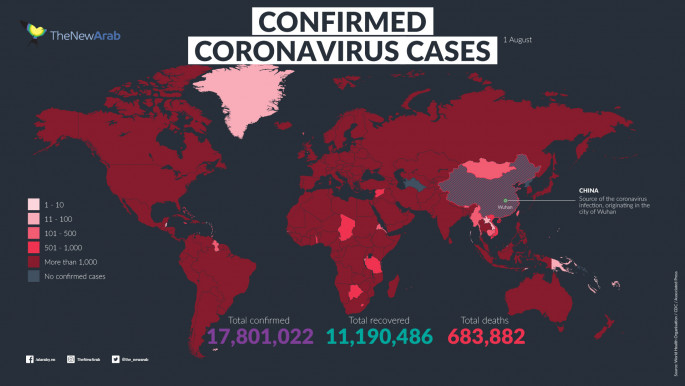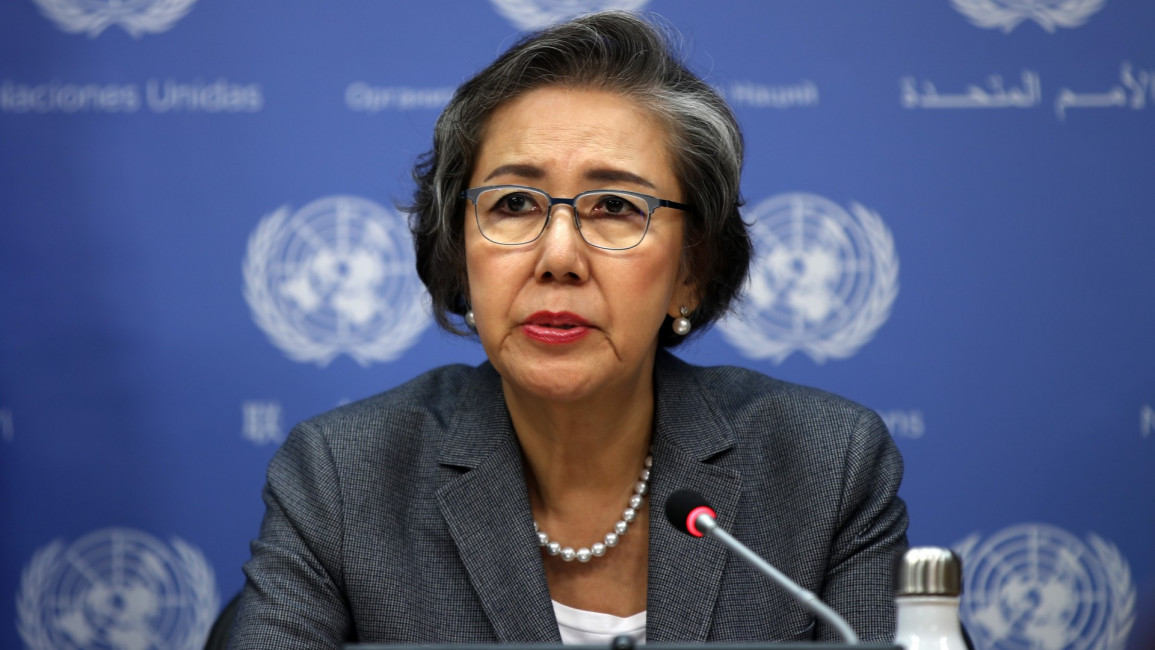Myanmar military may be committing crimes against humanity with Rohingya Muslims massacres, UN reveals
Myanmar military may be committing crimes against humanity with Rohingya Muslims massacres, UN reveals
The UN rapporteur has warned that Myanmar is 'maximising suffering' for Rohingya Muslims and other minorities in actions reminiscent of 2017 crimes against humanity.
3 min read
UN Special Rapporteur on Human Rights in Myanmar Yanghee Lee [Getty]
Myanmar’s military could be committing crimes against humanity as violence against the Rohingya Muslims in Rakhine state continues to increase, in a dark repeat of the crackdown in 2017 that forced more than 700,000 Muslims to flee across the border to Bangladesh.
The violence is being repeated once again, and the minority Muslim Rohingya, as well as other minority groups are being targeted by the military.
In a statement issued on Wednesday, UN Special Rapporteur on Human Rights in Myanmar Yanghee Lee said those living in conflict-ridden states like Rakhine and neighbouring Chin state are being subjected to systemic violence, and called for the international community to "ensure that there is not another systemic failure like in 2017".
This comes as Myanmar is facing allegations of genocide over its vicious military crackdown which began in August 2017.
Calls of ceasefire from the UN have fallen on deaf ears as the military, known as the Tatmadaw, escalated fighting against the Arakan Army (AA), an ethnic Rakhine rebel group pushing for independence from central government.
"The Tatmadaw is systematically violating the most fundamental principles of international humanitarian law and human rights. Its conduct against the civilian population of Rakhine and Chin states may amount to war crimes and crimes against humanity," she added.
The military have targeted schools, houses, buses and a village of 700 homes was burned to the ground in actions that are eerily similar to the 2017 devastation on the Rohingya people.
Rights groups have painstakingly documented forced disappearances, arrests, torture and killing of men who were accused of being members of the AA.
"Having faced no accountability, the Tatmadaw continues to operate with impunity," Lee said.
|
"For decades, its tactics have intentionally maximised civilian suffering; we all know what they did to the Rohingya in 2017. They are now targeting all civilians in the conflict area, with people from Rakhine, Rohingya, Mro, Daignet and Chin communities being killed in recent months."
Coronavirus fears
The UN secretary general, Antonio Guterres has called on those engaged in conflict around the world to put down arms and focus on combating the novel coronavirus pandemic.
There are over one million Rohingya refugees in camps in Bangladesh, and concerns are mounting that an outbreak of Covid-19 in those places would prove devastating to the population.
A driver working for the World Health Organisation (WHO) who had been transporting swabs from patients tested for coronavirus was killed when his vehicle was attacked by gunfire in Rakhine state, with both sides denying responsibility for the attack, The Guardian reported.
Human Rights Watch has requested the Bangladesh government grant refuge to hundreds of Rohingya Muslims stranded in two fishing boats off its coast for up to several weeks, who are in urgent need of food, water and healthcare.
Bangladesh's Foreign Minister Abdul Momen said last week the country would not allow entry to any more Rohingya refugees, who have been fleeing mass atrocities in neighbouring Myanmar.
"I am opposed to allowing these Rohingya into the country because Bangladesh is always asked to take care of the responsibility of other countries," said Momen, adding that the coronavirus pandemic has caused an influx of Bangladeshi nationals returning to the country.
"We have no room to shelter any foreign people or refugees," he said.
 |



